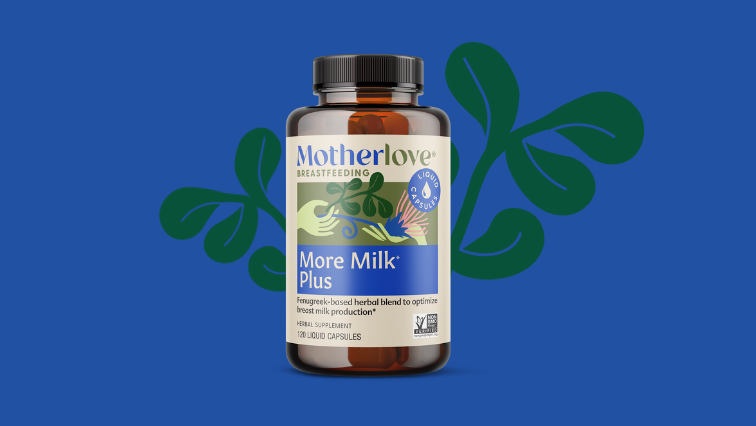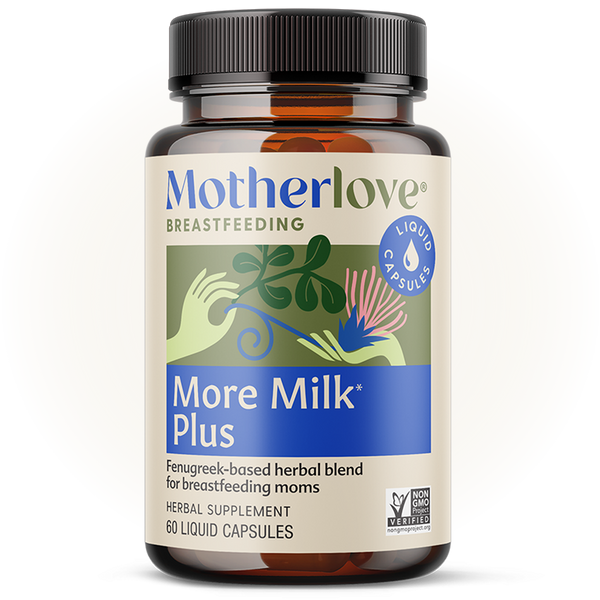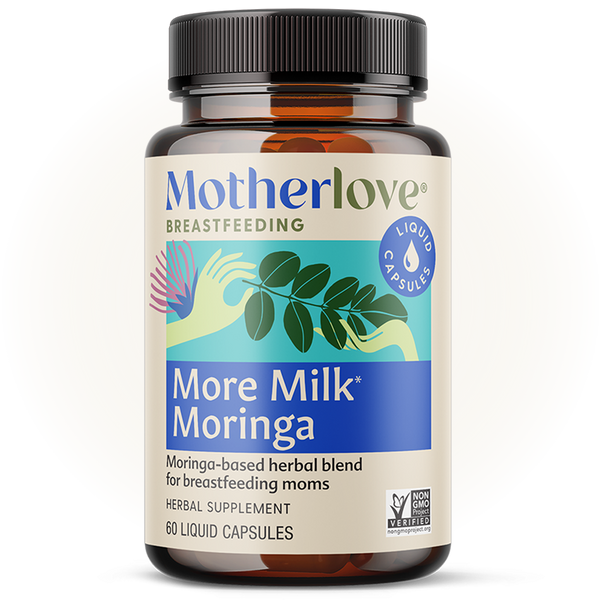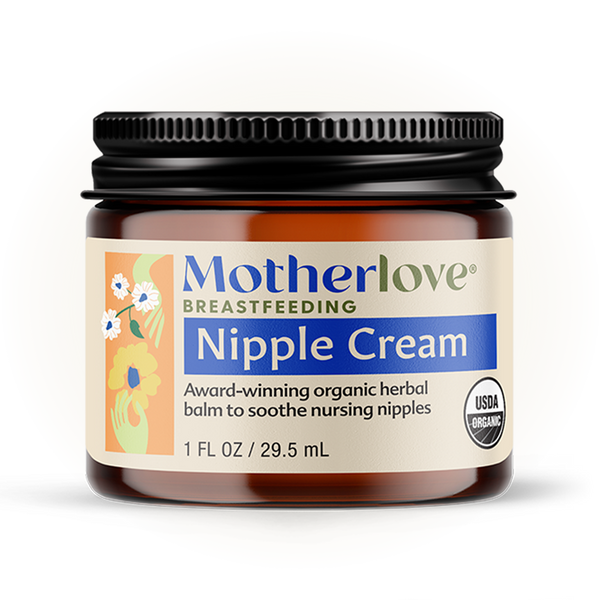Written by: Wendy Wisner, IBCLC with an Introduction by Motherlove.
Have you been seeing negative sentiment around fenugreek on social media lately?
How did the most popular herb for boosting milk supply recently lose its place in the spotlight?
Will fenugreek dry up my milk supply? Is fenugreek bad for me?
While much of the negativity comes from misleading marketing, some of the perceived negativity is correct because the herb is not the right choice for every breastfeeding mother’s needs.
For over 30 years, we have worked with thousands of mothers who have successfully supported their breastfeeding journey with fenugreek. We believe in sharing facts, studies, and anecdotal evidence here at Motherlove instead of using generalized statements that fail to offer you the right of informed choice.
So, we worked with our contributing IBCLC writer to break down this herb for you, to highlight why fenugreek has been a fundamental herb to support breastfeeding for generations of women around the world, to share with you the myths and facts about fenugreek, and to help you decide for yourself if fenugreek is (or isn’t) the right option for you.
We also offer a “Selecting Your Supplement” Guide to help you decide which type of herbal supplement – with or without fenugreek - may be the best choice for your unique breastfeeding situation.
Enjoy the article, and as always, let us know if you have any questions!
______________________________________________________________________________
In my experience as an IBCLC and La Leche League Leader, I’ve found the herb, fenugreek, to be one of the most popular substances used by breastfeeding moms to increase milk supply. Typically consumed as a tincture, tea, or capsule, many mothers report positive results after using fenugreek to improve supply, and usually with very few, if any, side effects.
However, personal anecdotes are not the same as research-based evidence, and so some mothers are left wondering if fenugreek really is all it’s cracked up to be, and whether consuming it is going to give their supply the boost they are looking for.
WHEN WOULD A MOTHER TAKE FENUGREEK?
If you are in a position where you are considering a galactagogue (any food, herb, or medicine used to increase milk supply) it’s important to understand the role that such substances play in your breastfeeding experience.
First, it should be noted that the majority of mothers can make enough milk for their babies without having to consume anything special. Much of what you need for good milk supply is a well-latched baby and for your breasts to be emptied at regular intervals (usually about every 2-3 hours, whether you are pumping or breastfeeding). Remember, too, that in the first 2-4 days after giving birth, you won’t be making a ton of milk, and that is normal. Before your milk “comes in,” you will be producing colostrum, which is small in amount, but is all your baby needs at first.
Even after their milk comes in, a small percentage of moms have medical, hormonal, or anatomical differences that make it difficult to produce sufficient milk supply, and there are occasionally babies who have issues effectively extracting milk (like babies with tongue-tie). Other mothers have trouble establishing or maintaining their milk supplies due to difficult births, or schedules that don’t allow adequate breastfeeding or pumping time.
If you are having one of these issues, a milk supply booster like fenugreek may be very helpful, but it is also important to address the underlying issue for your low milk supply. Speaking with a volunteer breastfeeding counselor or lactation consultant to help you come up with a plan that suits your particular situation is key. Note, too, that fenugreek is not considered safe for pregnant mothers to consume as it is a uterine stimulant, and it is recommended that you wait until your milk comes in before starting a galactagogue.
WHEN NOT TO TAKE IT?
Just as a caution, if a mother has hypothyroidism or is insulin-dependent, then Motherlove would not recommend taking a product that has fenugreek in it. Fenugreek can lower the thyroid hormone, T3, and in large doses, can also lower blood sugar. It is also avoided when a mother has a sensitive stomach or sensitivity to the herb.
WHAT DOES THE RESEARCH SAY?
So, let’s get down to business and look at what the evidence says about fenugreek as a galactagogue.
While there isn’t a lot of comprehensive research done on fenugreek and breast milk supply, the research that is available is promising and points to fenugreek as a great option for increasing milk supply. There are several research studies, published by well-respected, peer-reviewed journals that are worth examining. Let’s look at three different studies and what the researchers concluded.
First, a 2014 study published in the Journal of Pediatric Sciences found that women who drank fenugreek tea in the immediate postpartum period saw a “statistically significant” boost in their milk supply three days after birth. This trend persisted into the 7th day postpartum, where the newborns of mothers who consumed fenugreek continued to have increased weight gains as opposed to the control group. By the 14th day postpartum, there was no longer a milk supply increase among the fenugreek tea-drinking moms in comparison to the control group. The researchers concluded that fenugreek is useful for boosting supply in the immediate postpartum period.
A separate study, published in The Journal of Alternative and Complementary Medicine, also concluded that fenugreek can be helpful in establishing milk supply in the immediate postpartum period. In this study, mothers who drank fenugreek tea increased their milk supply and their babies regain their birth weight faster than the control group, which did not consume fenugreek.
Finally, a relatively new study published in 2018 in Breastfeeding Medicine, looked at mothers consuming capsules containing fenugreek, ginger, and turmeric versus mothers consuming a placebo. Moms taking the fenugreek/ginger/turmeric pills saw a 49% increase in milk volume after two weeks and a 103% boost after four weeks! The authors also note that there were no adverse effects from consuming the capsules.
WHAT DO THE EXPERTS SAY?
In addition to a review of scholarly articles, I also interviewed two experts – PhDs in their fields – to discuss the evidence out there about fenugreek as a galactagogue.
Dr. Divya L. Selvakumar, a Registered Dietitian, Nutrition Specialist, and Nutrition Professor based in Laurel, MD, cited three studies (including the one from Breastfeeding Medicine referenced above) that discussed some of the positive qualities of fenugreek as a milk supply booster.
In a study published in Phytotherapy Research, says Dr. Selvakumar, “the consumption of fenugreek substantially increased breast milk production in a sample size of 122 participants.”
Dr. Selvakumar also cited research published in the Egyptian Pediatric Association Gazette in 2018. This study found that fenugreek consumption resulted in “higher incidence of lactogenesis during the early stages, but not in the later stages of breast milk production,” as she explained it.
When asked for her clinical interpretation of the study results, Dr. Selvakumar commented, “Fenugreek does offer benefits in increasing breast milk supply and encouraging overall lactation in breastfeeding mothers.”
“As a dietitian, I believe that fenugreek offers great benefits for lactating mothers,” she added.
Dr. Selvakumar recommends mothers who are looking to increase their milk supply with fenugreek do so by finding a reputable fenugreek-based product and to start slowly, then increase dose[SS10] s while monitoring yourself and your baby for any reactions. Fenugreek sometimes causes gastric upset in babies, she warns. She also says that fenugreek should not be consumed by mothers who are allergic to legumes or chickpeas and that diabetics should take care to monitor their sugar levels while consuming fenugreek.
I also caught up with Dr. Katie Foss, a Health Communications Associate Professor at Middle Tennessee State University and author of Breastfeeding and Media: Exploring Conflicting Discourses That Threaten Public Health. A mother herself, Dr. Foss agrees that there needs to be more research conducted on the use of fenugreek as a galactagogue, but she believes there is enough information out there to make a pretty convincing case for its use – and also that the positive experiences of mothers themselves should not be dismissed.
“The limited studies on fenugreek suggests that it can serve as an effective galactagogue, increasing milk supply. That said, it is difficult to measure the impact of fenugreek on an individual woman's supply,” Dr. Foss says.
She adds that it’s important to look at the whole picture while evaluating the success rate of something like fenugreek. “Many factors go into how much milk a woman produces at a particular moment – her nursling's feeding pattern in the previous days, the extent to which she has partner support, her beliefs about her own milk supply, etc.,” notes Dr. Foss.
The emotional benefit that a galactagogue like fenugreek gives moms is important too, says Dr. Foss. “A mother's confidence in her milk supply can make a significant difference in the overall breastfeeding experience. Assuming no underlying health conditions, I think that taking fenugreek can really help with faith in one's ability to produce.”
WHERE CAN I GET MORE INFO?
If you are considering taking fenugreek to boost your milk supply, you are in good company – many mothers, including a lot that I have personally worked with, have found it to be safe and effective. Mothers often take comfort in the fact that fenugreek is a food ingredient that has been used for centuries in many cuisines across the world, including India, China, and the Middle East.
You may consider reviewing the entry for fenugreek on Lactmed, a government-sponsored database on medications and herbal safety for breastfeeding mothers. Lactmed notes that fenugreek is not known to have adverse effects on babies of mothers who consume it. You may also want to check the information cited on the FDA’s website where fenugreek is listed as “generally recognized as safe” for breastfeeding moms when used in moderation.
As with everything else, if you have any concerns about consuming fenugreek while breastfeeding, you should contact your healthcare provider or speak to a lactation consultant.
Happy nursing!







